AfBAA marks a successful first regional symposium in Marrakech.
Tuesday 15th October 2013
Participation, perception, and education identified as key issues.
The African Business Aviation Association (AfBAA) welcomed an audience of 126 delegates from 76 companies at its inaugural regional symposium which took place 26-27 September. The meeting, which hosted 50% more attendees than expected, was held at the prestigious La Mamounia Hotel, Marrakech, and attracted a mix of international and African Business Aviation stakeholders from across the industry spectrum. Chaired by Alan Peaford, members and non-members keenly debated topics relating to the symposium's main theme which was to explore the many benefits of adopting Business Aviation in Africa.
Key to the success of the meeting was the attendance by government representatives. Mr Abdenbi Manar, General Director of Morocco's Civil Aviation Authority opened day one commenting that Business Aviation is a core part of Moroccan Aviation, and that the Moroccan government is investing in infrastructure and policies to support its growth. In recognition of the work AfBAA is undertaking Mr Manar presented Tarek Ragheb, the Association's founder and Chairman with a commemorative plaque. Also notable was the attendance by Capt. Dele Sasegbon Director of General Aviation at the Nigerian Civil Aviation Authority Nigeria, demonstrating his active support for the development of the sector.
The need for participation was recognised as a paramount theme as Tarek Ragheb commented during his opening address, "Business Aviation will be the vehicle that will improve economies and social structure in the region, but it is not possible to change anything without participation." Symposium participants included representatives from the OEM, FBO, financial, legal, operator, flight support, and safety sectors, who all agreed that participation at a number of levels is integral to supporting development.
Throughout the meeting delegates expounded that it is essential that governments improve their comprehension of the industry to better understand the value it adds socially and economically to Africa. Education is key to development and a general consensus was reached that those in Business Aviation should support the need for increased educational opportunities to attract more people to the industry. Mohammed Al Husary, Executive President of UAS, the principal sponsor of the meeting, stated that the support services company had already committed to training two scholars through the Emirates Aviation College in Dubai and called on other companies to consider sponsoring students.
Addressing negative perception (on safety) crucial - Tarek Ragheb
Delegates agreed that the negative perception of African Business Aviation, and the aviation sector in general, needed to be addressed. "Aviation safety is critical and we need to address this to change perception," commented Ragheb on the underlying factor affecting negative images both across the continent and internationally. Many CAAs are still unclear of the value of Business Aviation, so AfBAA Founding Member Dalia Air's Madame Hind El Achchabi, Chair of International Relations Committee, is reaching out to the Ministries of Transport across Africa to explain the values of supporting the industry and to present Business Aviation as a valuable business tool for local economies. CAA's are also being invited to become honorary members of AfBAA to encourage better understanding.
Speaker panels comprised of insurance companies, financiers, lawyers, taxation bodies and banks all agreed that safety was a major concern when a client approached them for their services. All of the services are available to the market, but a lack of statistics, trained manpower, and inconsistent risk analysis across the continent all contribute to the negative views. A welcome addition to the conference was Andreas Cordes from the European Aviation Safety Association (EASA) who presented the recently proposed authorisation for Third Country Operators (TCO). The suggestion is that all operators, outside of Europe, engaged in commercial air transport operations in Europe must demonstrate to EASA compliance with ICAO standards. The process was described as relatively simple with an online application leading to eventual approval depending on the EASA assessment. It was suggested that this would help standardise operator safety if African operators participated. Acting as a validation, not a replacement of local competent authority rules, the TCO is anticipated to come into force in 2014.
Other challenges noted by the meeting included the size of the continent; the lack of on the ground infrastructure with few FBOs operating at European standards and airports lacking the full range of services; Spare part acquisition continues to be problematic with no defined network of OEM suppliers particularly in the Sub-Saharan region; lack of MRO services; consistent safe fuel supply; and; and a lack of clear statistics to support investment plans.
Africa is Open for Business - Toucan Aviation, Nigeria
"Africa is open for business," stated Achuzie Ezenagu, MD of Toucan Aviation a Nigerian corporate jet operator who mirrored the thoughts of many at the conference. With 54 different Civil Aviation Authorities to integrate, Ragheb suggested that the creation of AfBAA general standards to tackle head on the many challenges would be valuable. "With the participation and support of stakeholders, combined with consistency and transparency from the industry, we can begin to define standards for safety and education that will support future African growth and sustainably develop the industry" he continued. Ragheb ended the conference inviting participants to make suggestions about the areas on which they would like to see AfBAA focus next, and to suggest potential locations for the subsequent regional symposium in 2014.
About AfBAA:
The African Business Aviation Association was launched in May 2012 to represent the interests of the Africa's aircraft owners, operators, and suppliers to the Business Aviation community in a single voice. AfBAA currently has 40 members in total.
AfBAA's primary objective is to promote the understanding and benefits that Business Aviation provides for the Continent's economic development and prosperity through advocacy.
As an active, well-funded, professionally run organisation AfBAA is committed to increasing membership, raising awareness of the Association internally and externally in Africa and supporting all entities involved in Business Aviation in Africa.
Chairman Tarek Ragheb, and Executive Director is Rady Fahmy, work with the Founding Members to lead development of the Association.
Latest News
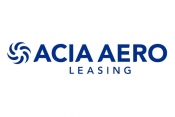
Wednesday 19th February 2025
ACIA Aero Leasing places ATR72-500 Bulk Freighter with Canada’s KF Aerospace
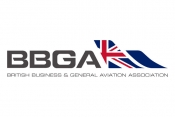
Wednesday 19th February 2025
Serious consequences for charters operating without a valid UK Foreign Carrier Permit, warns BBGA




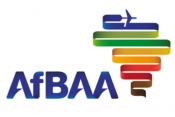
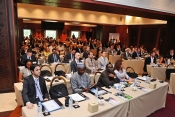

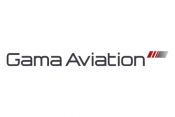

Get Social
Twitter Linked in Facebook Instagram